World War Two GI baby: Albert Gilmour reunites with family
- Published
Albert Gilmour grew up believing his mother was his sister
When Albert Gilmour needed his birth certificate to get married, his mother seemed reluctant to hand it over.
When he had it in his hands, it revealed a family secret.
Albert had enjoyed a happy childhood but in 1965, at the age of 21, he discovered his eldest sister was his mother.
"It was a bitter pill to swallow," he recalled.
Shocked to realise he had been brought up by his grandparents, Albert demanded answers from Ruby Gilmour - the "sister" who was in fact his biological mother.
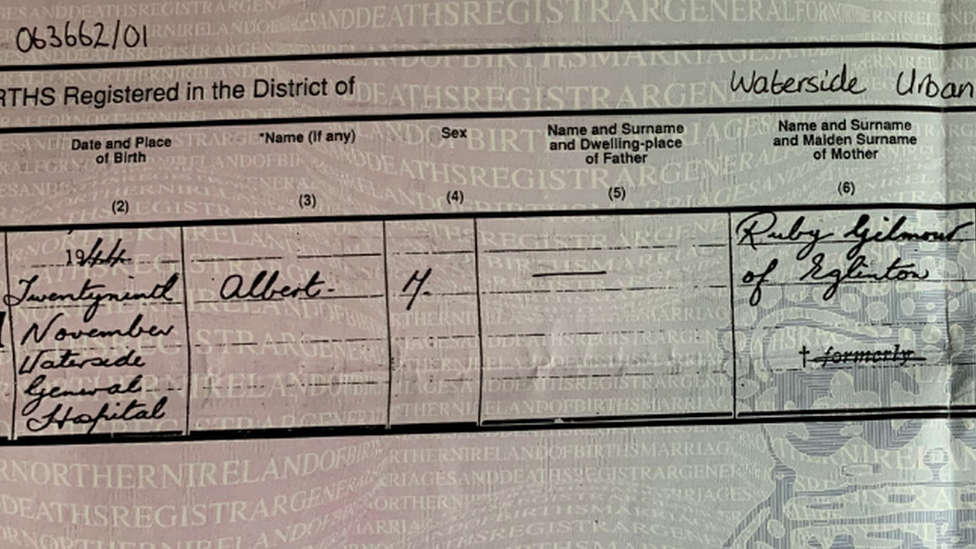
When Albert needed his birth certificate to get married he was shocked to see his father was unnamed
He asked about his father, whose name was missing from his birth certificate - and couldn't believe what she told him.
Albert had been named after his father, Albert Carlow, from Calais, Maine - who was one of 300,000 American troops stationed in Northern Ireland during World War Two.
Ruby was 17 when she met the young soldier while he was based near her home in Eglinton, County Londonderry.
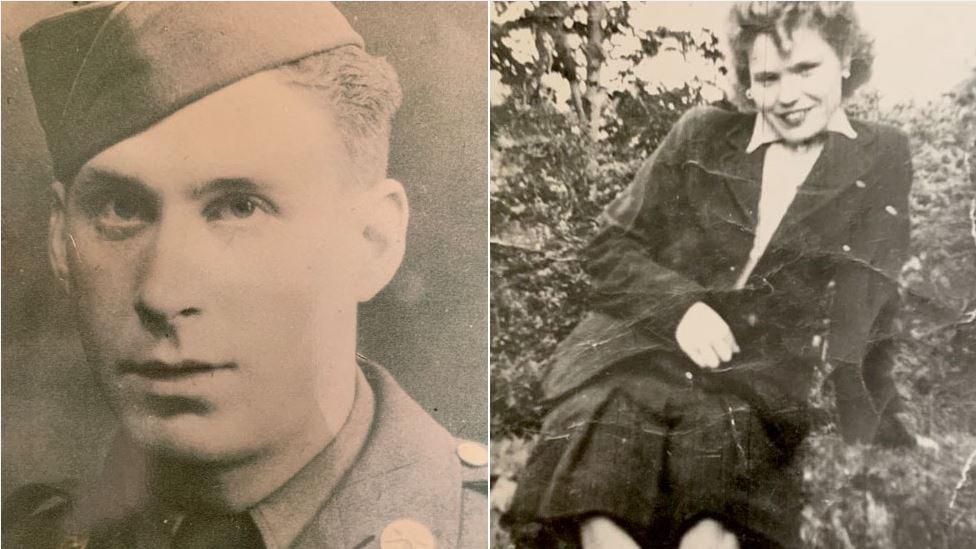
Albert Carlow and Ruby Gilmour around the time they met during World War Two
Albert's parents parted in the spring of 1944, when his father was secretly dispatched to the beaches of Normandy for the D-Day landings.
When Ruby gave birth that November, she named her baby boy after his father, who she believed had been killed in action.
Following the revelation, Albert said he "let matters rest" out of respect for his grandparents and mother.
But almost 35 years later, in the late 1990s, Albert's daughter Karen Cooke decided to research her father's story as a surprise.
'Devastating news'
From a young age, Karen had known her grandfather was an American GI.
She managed to trace one of Albert's aunts using an address which her grandmother Ruby had memorised 50 years before.
Albert Carlow had written it on the back of a cigarette packet for his lover during the war.
"The best gift I could give my father was for him to meet his remaining relatives," Karen said. "It was a piece of him I always knew he had, his American side."
Albert credited Karen's determination with the life-changing opportunity that followed.
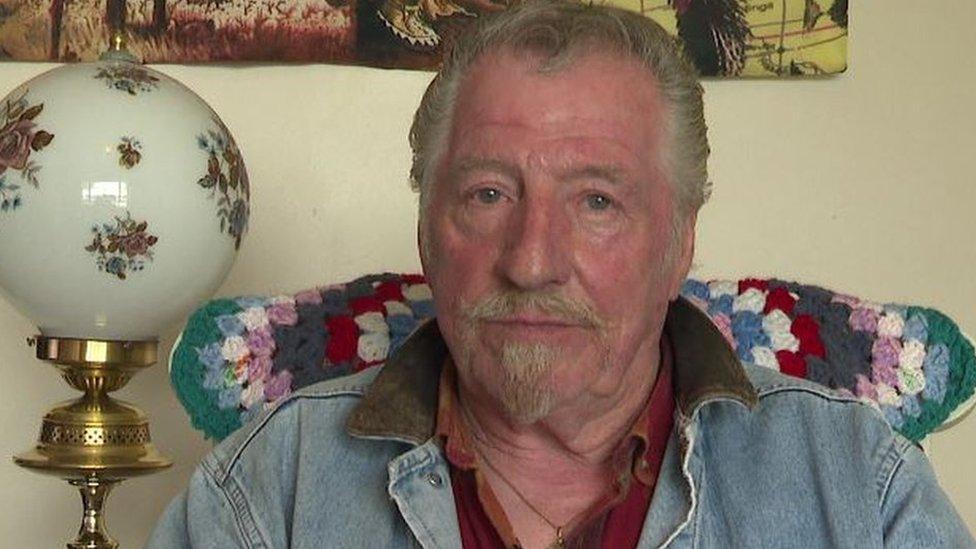
Albert Gilmour found out about his true parentage at the age of 21
In a late-night phone call to his aunt, he received the devastating news that his father had died 20 years previously.
But he was delighted to hear his grandmother was alive and that he had two half-brothers.
Albert's aunt offered to fax a photograph of his father to him.
As the image slowly printed off the fax machine, he could not believe the resemblance he bore to his father.
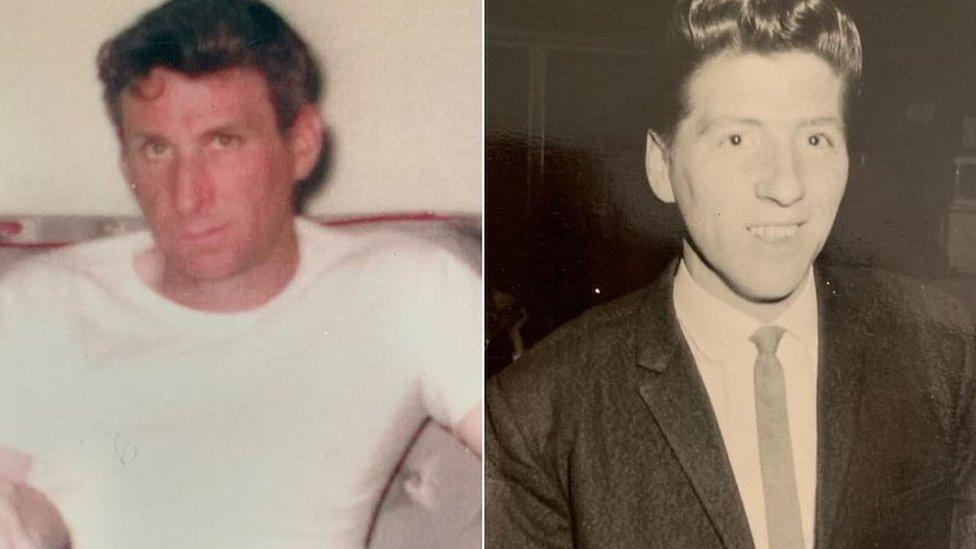
The family of Albert Carlow (left) were shocked by the resemblance to Albert Gilmour (right)
Albert and Karen went to America for a family welcome he said was "like a dream come true".
"It just didn't feel real," he recalled. "They said: 'We know to look at you who you are, your mannerisms, your whole being, you are just your father.'
"I didn't have to explain anything, I didn't have to prove anything.
"Everyone knew who I was. I felt more at home there than I did here whenever everything was brought to light."
Albert had an emotional meeting with his grandmother before travelling to see his father's grave.
"There was snow on the headstone and I had to wipe it away to see his name. I just felt that weight being lifted off me. I walked away and my life was full then," he said.
"There was no more wanting. I didn't have to worry who I was anymore."
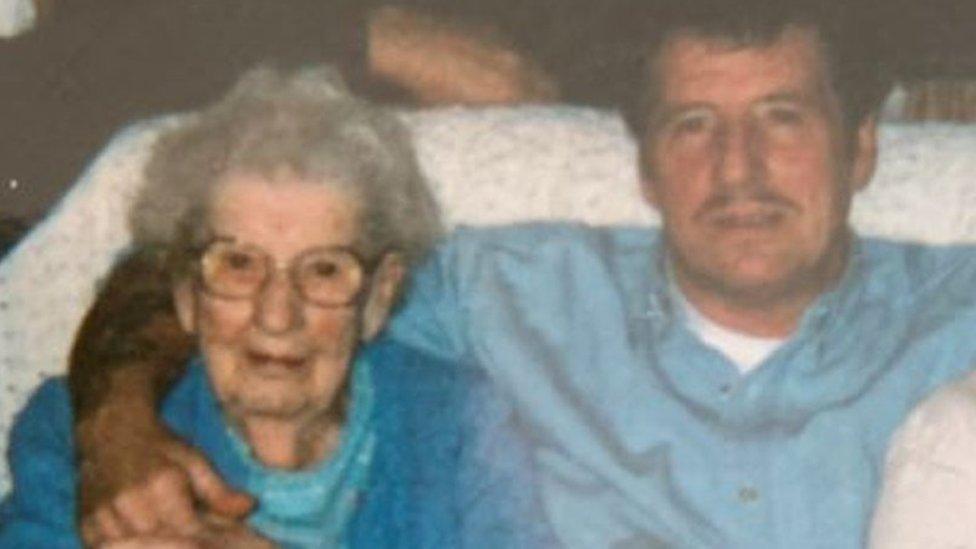
Albert with his grandmother Belle Carlow, who was in her 90s when they met
When Albert returned home he showed Ruby a photograph of his father.
"She cried sadly, it was hard for her," Albert said.
"She told me he was well mannered, he was decent, they gelled together.
"He was heartbroken when he was leaving her and she was heartbroken. The contact was just broken."
'I took part of your life away'
Albert explained that his father had not returned to her as promised because he had been deployed to Africa from France before being flown directly home at the end of the war.
But he had kept coins from Northern Ireland throughout his life.
Albert said he had another emotional conversation with his mother days before she died.
"She took my hand and said: 'I'm sorry, I know I took part of your life away'.
"I said: 'You have no reason to be sorry'."
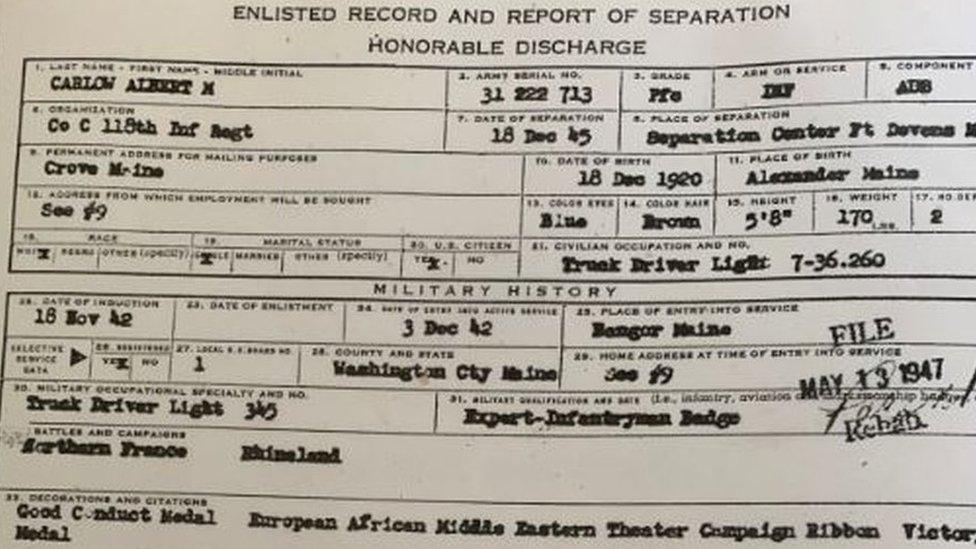
Albert Carlow's honourable discharge papers document his time in Northern France
As his 75th birthday approaches, Albert said he wants to tell his "very personal" story for the first time.
He believes there are many more "GI babes" like him "who don't know where to go or are too embarrassed to talk about it".
"Everything was kept hush hush years ago. The secret was kept very close and nobody told me anything," he said.
"If you were born out of wedlock it was just as if you didn't exist. Some lived through their life and died with it and never got the chance I got.
"I am hoping these stories don't fade away."